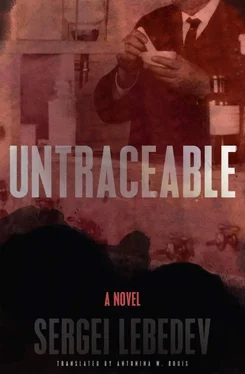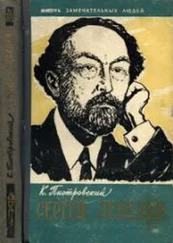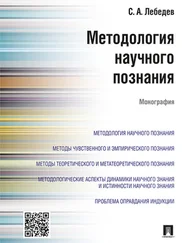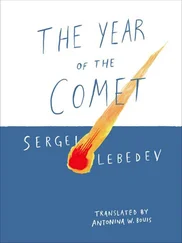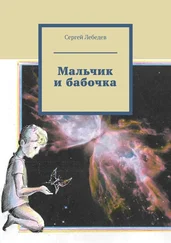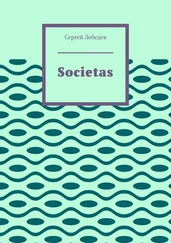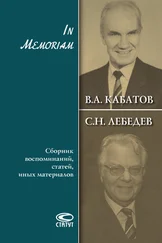Сергей Лебедев - Untraceable
Здесь есть возможность читать онлайн «Сергей Лебедев - Untraceable» весь текст электронной книги совершенно бесплатно (целиком полную версию без сокращений). В некоторых случаях можно слушать аудио, скачать через торрент в формате fb2 и присутствует краткое содержание. Город: New York, Год выпуска: 2021, ISBN: 2021, Издательство: New Vessel Press, Жанр: Современная проза, на английском языке. Описание произведения, (предисловие) а так же отзывы посетителей доступны на портале библиотеки ЛибКат.
- Название:Untraceable
- Автор:
- Издательство:New Vessel Press
- Жанр:
- Год:2021
- Город:New York
- ISBN:978-1-939931-90-0
- Рейтинг книги:3 / 5. Голосов: 1
-
Избранное:Добавить в избранное
- Отзывы:
-
Ваша оценка:
- 60
- 1
- 2
- 3
- 4
- 5
Untraceable: краткое содержание, описание и аннотация
Предлагаем к чтению аннотацию, описание, краткое содержание или предисловие (зависит от того, что написал сам автор книги «Untraceable»). Если вы не нашли необходимую информацию о книге — напишите в комментариях, мы постараемся отыскать её.
Untraceable — читать онлайн бесплатно полную книгу (весь текст) целиком
Ниже представлен текст книги, разбитый по страницам. Система сохранения места последней прочитанной страницы, позволяет с удобством читать онлайн бесплатно книгу «Untraceable», без необходимости каждый раз заново искать на чём Вы остановились. Поставьте закладку, и сможете в любой момент перейти на страницу, на которой закончили чтение.
Интервал:
Закладка:
The Island was revived almost immediately, it was so good, so needed, so convenient. The Iron Curtain was lowered, the threat of a third world war was growing, and the old testing ground was back in business.
But now it was divided among several competing agencies. The arguments slowed down testing, led to mistakes and quiet sabotage, to scientific backbiting.
Uncle Igor, Igor Zakharyevsky, truly revived the Island. He had long wanted to leave the old City and found a new one: even more closed, equipped with cutting-edge technology, and subordinate only to him in science; it was his ticket to immortality, the chance to be elected a full academician on the secret list.
While Kalitin was in school, Zakharyevsky collected allies, led intrigues, pushed his idea at the very top. The result was the birth of a new unnamed city, known only by a number. All the sections divided up by bureaucratic battles were gathered into a whole. Uncle Igor made sure the future laboratory was classified top secret, which, as Kalitin knew better than most, since he later headed it, turned the Island into a black hole, a scientific domain free of all local and agency oversight, exempt from almost every kind of control.
Essentially, Zakharyevsky could work on whatever he wanted. None of his colleagues had the right or possibility to evaluate the quality of his programs, methods, and goals. Kalitin knew how prodigious sinecures arose, colonies of scientific drones, who worked for decades—until the top patron fell—on some expensive nonsense as long as it could be wrapped in the right slogans and appeared to follow the Marxist line; becoming encrusted in factories, vacation homes, polyclinics, but not bringing even a grain of knowledge.
Kalitin was also devoted to Zakharyevsky because he had not created the Island for the sake of fool’s gold. They were both attracted to true knowledge that did not depend on the direction of the ideological wind; only such knowledge gave long-lasting power.
Zakharyevsky was supported by the KGB: where there are secrets, there are bonuses for concealment, new staff, control, operative work. Kalitin also suspected that the head of security on the Island, a former Stalinist general moved into active reserves, was also seeking a quiet, opaque harbor in the new unsettled times; he, or rather his colleagues from the old guard, helped Zakharyevsky.
Kalitin often imagined the Island as a matryoshka doll, consisting of layers of increasing secrecy.
The first, external layer was the country itself with its closed borders. The Island was not mentioned in reference books, the press, or radio, nor was it indicated on maps. An entire region was closed to foreigners. The American spy satellites—the Island had the schedule of their passing overhead, when outside work and field testing were not allowed—were supposed to see a maximum security prison.
Kalitin knew the neighboring settlements were filled with informers, that the Island was enmeshed in invisible security threads, surrounded by hidden sentinels; only the river was allowed to flow past unhindered. But the river was an ally, a guardian of secrets. The river protected the Island, and its images reflected in the water remained unrecognized. Tourist boats traveled along the far shore, where nothing could be seen through binoculars. Kalitin liked being part of the power that changed schedules and routes, a power that could bend time and space, so that the Island could remain just an island for outsiders: an almighty and all-pervading power.
Naturally, on the Island, which now had the status of a city spreading along the banks of the river, there were numerous degrees of proximity to the secret core, separated by fences, barbed wire, checkpoints, patrols, passes, nondisclosure agreements, and in-depth investigation of candidates. The periphery, the outline of the Island, could be seen from without, could be calculated from correspondence and financial documents.
But the closer to the core, the more illusory became the very existence of the inner Island, known to a contracting circle of the initiated. Only a few individuals knew about the laboratory, so covert that it did not exist on a single list of secrets.
All the previous reincarnations of the Island seemed to come together in the laboratory. It was sanctuary, prison, altar, and test ground. A new synthetic entity, an abstraction, cut off from the outside world. The laboratory.
His first sight of the Island was from the ferry. A late autumn sunset was busy over the river, and the Island appeared from clouds of fog, alien to everything, aloof, magical. Kalitin felt it was a sign, and he appreciated, understood, and fell in love with the Island at that moment, guessed all its features, advantages, obvious and hidden gifts—and was prepared to give his life to the power that had created the Island, because it was preordained for him, responded to the deepest desires of his being.
Kalitin was not a faithful Communist. He knew the clichés and rituals well, and had a party membership card—without it he would not have risen beyond laboratory head. Kalitin was attracted by the paradoxical freedom-in-prison that the Island offered in a land of ideologized, dogmatically mediated science.
He was a knowledgeable, intelligent chemist. No genius, compared to others. He needed that closed, hermetic world, in order to exist, to work. It did not have the gravity of morality, and he was able to rise to the heights of circumscribed genius by inventing Neophyte, the most perfect of his creations.
All of Kalitin’s previous life was built on the idea of the Island’s singularity. He knew it the way a mollusk knows its shell, and he carried it with him even when he was deprived of it. He knew that there were other closed cities, other refuges; but only the Island and Kalitin were inseparable. That inseparability was never doubted; even the house on the mountain slope he had come to love was only an imposed replacement, pathetic in comparison.
And suddenly—the fire had died down, the coals covered in gray ash—he felt that the Island was no longer unique.
Just as love contains the bitter seed of its own death as it matures, the total sense of merging with the Island brought an alien, unknown sensation; Kalitin realized, admitted, that he had been so devoted, so surrendered to it in vain. If not for that lulling, weakening loyalty, something else could have appeared in his life long ago.
For example, another Island.
The thought was almost blasphemous, but in it, despite himself, Kalitin felt the painful burn of hope.
His memory, as if agreeing to rejection and betrayal, offered up a contemporary appellation: bikini. Bikini Atoll. Atoll. Island.
Kalitin imagined it—a circular, palm-covered reef placed on an underwater volcano, surrounded by infinite ocean. The blue waters of the inner lagoon. The white, one-story laboratory building with heavy shutters against the sun—many substances do not like light, they need coolness and shade. A reliable dock for the delivery boats from the mainland. A four-legged tower with a roof, the silver finger of the searchlight dissolving in the night, dancing on the waves… After all, they—the fabulously wealthy—could do more than cure him. They could buy him an Island.
Island.
Island.
Island.
Kalitin’s hands shook. The bottle knocked against the crystal glass and made it ring. He wept with tears postponed for two decades, no longer salty; belated, warm, ugly, desired.
CHAPTER 12
Shershnev opened the railway line magazine. He needed a distraction. An ad: a happy couple running along a white sand beach, a hammock, a bottle of wine, palm trees. Reduced fares on direct flights to Asia.
He was unhappy from the start with the travel plan imposed by the bosses and the cover story they provided. He would have done it fast, in one day. Fly in, complete the op, fly out. That’s how the agents from the neighbors took out Vyrin.
Читать дальшеИнтервал:
Закладка:
Похожие книги на «Untraceable»
Представляем Вашему вниманию похожие книги на «Untraceable» списком для выбора. Мы отобрали схожую по названию и смыслу литературу в надежде предоставить читателям больше вариантов отыскать новые, интересные, ещё непрочитанные произведения.
Обсуждение, отзывы о книге «Untraceable» и просто собственные мнения читателей. Оставьте ваши комментарии, напишите, что Вы думаете о произведении, его смысле или главных героях. Укажите что конкретно понравилось, а что нет, и почему Вы так считаете.
